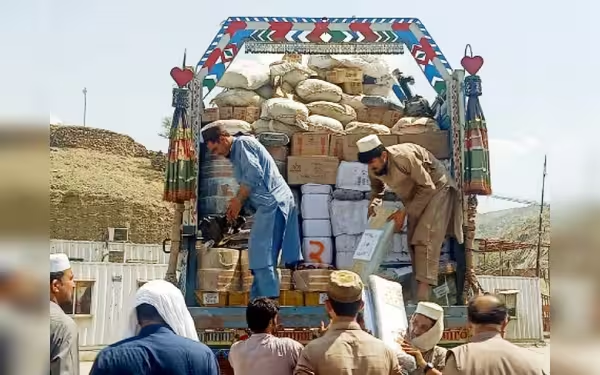Thursday, November 7, 2024 05:39 PM
Pak-Afghan Highway Reopens After Protests
- Pak-Afghan Highway reopens after negotiations.
- Tribesmen protest led to significant trade disruptions.
- Government urged to address local concerns.
 Image Credits: tribune.com.pk
Image Credits: tribune.com.pkThe Pak-Afghan Highway has reopened after negotiations, easing trade disruptions caused by local protests.
The Pak-Afghan Highway, a vital trade route connecting Pakistan and Afghanistan, has recently reopened following a series of negotiations aimed at resolving tensions between local tribesmen and the government. This highway is not just a road; it is a lifeline for many traders and families who rely on it for their daily needs and economic activities. The closure of this route had significant repercussions, particularly for the local economy.
In a notable protest, tribesmen, led by Malik Naseer Kokikhel, established a camp at the Bagyari Check Post. Their demonstration was a clear message to the government, expressing their dissatisfaction with the current situation. As a result of the protest, no trucks were permitted to transport goods to and from Peshawar, leading to a dramatic increase in commodity prices. This situation left many residents struggling to afford basic necessities, highlighting the direct impact of political actions on everyday life.
The reopening of the highway is a relief for many, as it allows for the resumption of trade and the movement of goods. However, it also raises questions about the underlying issues that led to the protest in the first place. The government must address the concerns of the tribesmen to prevent future disruptions. It is essential for authorities to engage in meaningful dialogue with local communities to ensure that their voices are heard and their needs are met.
While the reopening of the Pak-Afghan Highway is a positive development, it serves as a reminder of the delicate balance between governance and community relations. The government must take proactive steps to foster trust and cooperation with local tribes to ensure stability and prosperity in the region. Only through understanding and collaboration can we hope to build a brighter future for all those who depend on this crucial trade route.













